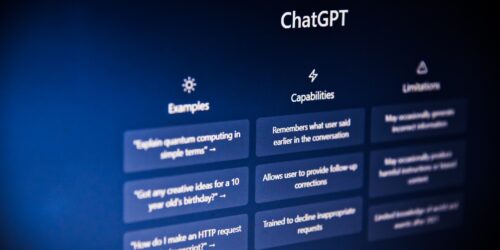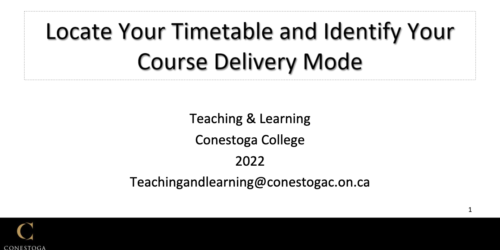Collaborative Online Intercultural Learning (COIL): Public Relations
Conestoga College has embarked on its pilot launch Collaborative Online International Learning (COIL) as an international virtual exchange program for students. In this kind of virtual exchange, students and faculty participate in joint coursework and knowledge sharing with students at institutions in other countries. In the first year of its pilot program the college had nine professors and over 300 students across four Conestoga schools participate in 11 virtual exchange initiatives. In year two, the college will see 17 professors partner with 23 global professors at 20 institutions in 10 countries on 19 COIL initiatives which will involve over 600 Conestoga students. Each professor is partnered with one or more professors and institutions to accomplish a joint learning initiative tied to one of their courses. Students work together on interdisciplinary and disciplinary projects over span of at least 4 weeks.
Trish Stevenson
Professor, Communications & Career Development (ST)

Our Public Relations Diploma students participated in Conestoga’s Collaborative Online Intercultural Learning (COIL) pilot project. I was looking for an equitable opportunity for the public relations diploma students to have a global experience. I started the process by giving a virtual lecture to third-year science and business degree students at Davao Oriental State University in the Philippines. The lecture topic was Public Relations (PR) in Canada. It was a great experience connecting with students in different time zones and discussing different experiences with communication opportunities within their community. The virtual lecture and subsequent open discussions were about how public relations and communications impact various stakeholders, the skills of a PR professional, global PR, ethics, corporate social responsibility, and the UNESCO’s Sustainable Development Goals.
I enjoyed the experience of being part of a global project in which the entire class could participate. The COIL pilot was perfect for implementing in our fall feature writing class. With a smaller cohort of 15 students, it allowed me to manage new logistics and encourage students to participate in intercultural competencies and global relationship building, which is a skill set our professional associations are saying is essential in our graduates.
We partnered with Universidad de Sonora’s third-year undergraduate business students tasked with writing a feature article on each other. The final personality profiles required two Zoom meetings over two weeks and offline communication to interview each other, collect quotes and information, and run rough drafts of their writing. Students learned to work through different time zones, languages, and writing approaches. Zoom helped us create a multicultural learning environment. Break-out rooms were an easy way to meet individually for each pairing of students. One-on-one partnerships meant students were active participants, not passive observers.
My partner professor, Diana Tocaven, from Universidad de Sonora and I could pop into the break-out rooms to check in and help facilitate if there were any stalls in the conversations. However, with a clear assignment of writing a personality profile, each student had an opportunity to chat about themselves with their partner, taking notes and asking follow-up questions. Students continued learning to respect the diversity of opinions, language fluency, and perspectives.
We kicked off our initial meeting on Zoom, and both classes participated in a cultural icebreaker. Diana asked the students questions and showed pictures of Canada and Mexico. Students voted true or false using Zoom’s reaction feature.
A key takeaway for the students was developing valuable skills in a global labour market that is becoming increasingly virtual and borderless. We highlighted skills they could add to their resumes and key talking points they could bring up in interviews. Some of the skills they added to their resumes were:
- Cross-cultural communication: Communicate effectively with students from different cultural backgrounds in different global settings using online tools.
- Teamwork/Collaboration: Collaborate with global partner students to successfully complete projects under tight deadlines.
- Intercultural Competence: Work with peers from diverse backgrounds and various working styles during an online project.
- Digital Proficiency: Utilize various digital tools and software to communicate with global teammates, including Zoom, Google Drive, and email.
Some challenges were navigating time changes, different levels of access to technology, and some language barriers. The students were patient and enthusiastic once they met their partner students. Some of the partners have remained in touch since the project wrapped.
Each faculty member marked their student’s personality profiles and had their own assignment and rubric; however, we shared each other’s assignment sheets and rubrics to align the project outcomes.
I highly recommend this equitable opportunity for your class to connect globally with other students!



